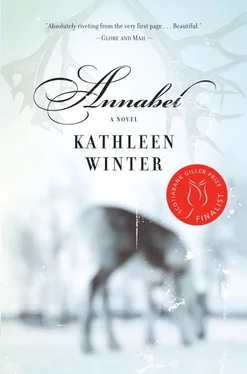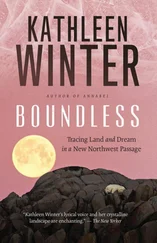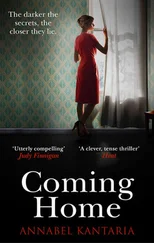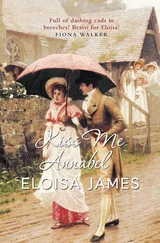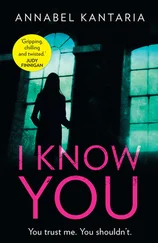The owl had made no sound and no movement. It looked like a piece of tree. He saw it, then he couldn’t see it. Then he could. He started talking to it in his quietest voice, and he hummed a tune to it. Which he would not have done for any other living being; not his mother, not his father, not his brothers, not himself. He liked, about the owl, that it asked nothing from him, and he had spoken to it ever since as if it were listening to him, though he never saw it again. It calmed him to talk to the owl, and he spoke to it now about Wayne.
“Everyone thinks,” he told it, “that I know what I’m doing. For God’s sake, I don’t have a clue what I’m doing. You know that.”
The owl listened from wherever it was. Deep, deep in the woods, past Beaver River, past the pond, which was the pond in the interior where the waters changed direction and began to run magnetically north to Ungava Bay, the pond whose name was a secret.
“I should have let well enough alone,” Treadway said. “I think that now. What would have happened if I had let Wayne become half little girl?”
The owl allowed Treadway to see Wayne as a girl child. So Treadway stood there in the woods and saw a vision of his daughter. She had dark hair and a grave face. She was an intelligent girl, and Treadway loved her.
“You’re a beautiful child.” But the child could not hear him as the owl could. The owl listened, and Treadway felt, for the first time since his wife had given birth, pain flow out of his heart and into the moss. It sank into the moss and became part of the woods. The owl took some of it. This had not happened to the pain before.
“I could stay here,” Treadway said. “You’re a brave little owl.” He thought of the owl as alone. He thought of it, really, as himself, although he did not think he was brave at all. People call their friends admirable in this way or that way — brave, honest, loyal — but they do not see these qualities in themselves, even if they are present in greater quantity than in the friends. Treadway could not see the good in himself. His wife thought he could, but he could not. He knew he was not as self-contained or as brave as the owl, but he identified with how it had chosen to live. If only the world could live in here, deep in the forest, where there were no stores, roads, windows, and doors, no straight lines. The straight lines were the problem. Rulers and measurements and lines and no one to help you if you crossed them. His owl was not going to come out of the deep woods. It was not going to come near the fences and doorsteps of Croydon Harbour. It knew better than to try and live in that world.
“I wish,” Treadway told the owl, “I could bring him in here with me for a good six months. Longer. Forget about the medicine that keeps him being a boy. Hospital medicine, no. The medicine in these trees. The turpentine. The smell of the blasty boughs. What would happen?”
Where was the owl?
“If I brought him here and never took him back? We could live here.”
The owl had its back to the man.
Treadway stayed out until dark. He navigated home the way he always did, by knowing the contours of the land, by the moon, by parts of Orion and the Dog Star, which appeared in certain clearings. He came home to a note on the table and two plates of dried-up salt fish and congealed drawn butter. The stove had gone out. The phone rang and it was Thomasina.
“I’ve been trying to get you.”
“Why?”
“We’re in Goose Bay. Wayne had to have pressure taken off his belly. There was a lot of built-up fluid. You weren’t home. But Treadway, I’m asking you to do something for me.”
“What’s that, Thomasina Baikie?”
“Tell Victoria Huskins I called you from the hospital and you gave me permission to bring Wayne in. She’ll have my head on a plate if you don’t.”
There are degrees of trust and mistrust. Treadway mistrusted a woman like Victoria Huskins much more than he mistrusted Thomasina. When you have known someone thirty years, even if you have different personalities and even if you would approach the same problem differently, at least you know where you both came from. There is a bedrock of respect. Victoria Huskins was not, in Treadway’s mind, basic. Thomasina was. There was a basic person in there to whom you could talk, in a worst-case scenario. Victoria Huskins, in a worst-case scenario, Treadway thought, would not be basic. Her concerns would be that the correct papers be filled out, that her skirt have its back seam running directly up the middle, that any stranger or pilgrim who sat in her pew be re-educated right away. He had seen this.
“What kind of built-up fluid?”
“Blood.”
“Blood?”
“A lot of it, Treadway.”
“Is he injured?”
“It’s normal blood that flows out of a girl’s body when she reaches Wayne’s age. Menstrual blood trapped inside. And there is another thing, but I would have to tell you in person.”
“Should Jacinta…?” Treadway was not happy talking about menstrual blood. He did not know what to do. “She’s out. With Eliza and Joan. Where’s Wayne now?”
“He’ll be home in the morning. I’ve been trying to call you. Visiting hours are over in five minutes. If you talk to the head nurse they will give me permission to stay here with Wayne. I can stay for the night, or you and Jacinta can come. He’s asleep. If you talk to them now they’ll let me stay. Otherwise I have to leave.”
“I’ll be there.” He was not going to let anyone but himself or his wife stay by Wayne’s bed overnight in the hospital. He did not phone Jacinta. He put his woods coat back on, though it was damp, and he got in his truck and went to get his wife.
One difference between Eliza Goudie and Joan Martin was that when they were drinking with the women for the night, Eliza bought piña coladas from the liquor store and Joan brought over a bottle of her husband’s single malt Scotch. Eliza liked fizzing concoctions with pineapple and coconut flavouring and palm trees on the bottle, while Joan just liked to get quietly wrecked. Joan heaved herself onto the loveseat and Eliza sat in the big old rocking chair near the television, which was a big television because her husband had liked to sit watching it while she was out at all hours with the geography teacher, or with the lovers she had had before that. He had liked to watch Bob Barker on The Price Is Right , and after that, Jeopardy .
“He hums,” Eliza told Joan and Jacinta, “the theme from Jeopardy while we’re making love. Dum da da diddle dum da daaaaa, dum, dadumda dee dee diddle diddle… talk about unconscious. Could you have an orgasm with that going on? Could you? Because I can. And do you know why? Because I imagine he’s gone to sleep on his surfboard and really I’m in bed with Dudley Moore and my hair is all in cornrows like, you know, what’s her name?”
“I dunno,” Joan drank from the bottle. “This is on the peaty side of single malts. It was made in a cave. Some tiny cave in the north of Scotland, more remote than we are here. My husband picked it out because of the cave. My husband, the caveman.”
Jacinta had a bottle of Mateus that had been in the freezer for half an hour. She liked how frost steamed around the gold label, the fffftz and the puff of fruity scent. If she was going to drink, Jacinta wanted fizz. She wanted Spain. She wanted celebration and the word rosé .
Joan had made the sour cream and onion soup mix dip from the new Kraft commercial, and had brought a huge bag of rippled chips. Eliza had brought a plate of Cheez Whiz on celery sticks, and Jacinta had made marshmallow cookies with melted chocolate chips and Parawax.
“What’s her name? Dolores?” Jacinta asked. “It’s not Dolores, is it?”
Читать дальше
